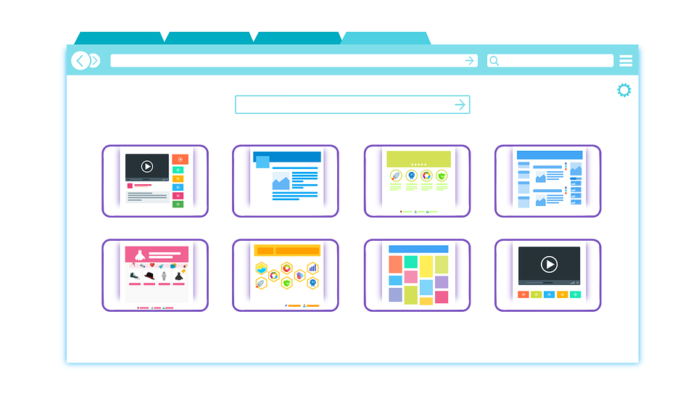Do you want to be freed from your routine and have more time to create, manage, and optimize your PPC campaigns?
You’re on the right path!
PPC automation tools can help you save time and improve your campaigns. Here is a list of the most popular tools to help you choose the right one for your needs.
What are PPC Automation Tools?
A PPC automation tool enables you to automate time-consuming tasks related to your PPC campaign, such as keyword research, monitoring, optimization, and reporting. This can free up your time to focus on other aspects of your business.
The Best PPC Automation Tools
The goal of PPC automation platforms is to make PPC advertising more efficient and easier. These platforms are designed to help PPC marketers automate their everyday tasks.
The tools available on different platforms can vary greatly. Some platforms offer more automation, while others have a more limited set of functions.
PromoNavi
Motto: “Online ads automation to grow your business.”
Ad platforms: Google Ads, Facebook Ads, Microsoft Advertising.
Promonavi helps marketers and small businesses automate their PPC work, uncover flaws, and track ad performance in real-time.
Key Features
- Keyword Planner and Campaign Builder. The tool allows you to carry out in-depth keyword research and build a campaign with one-click. You can expand your keyword list with phrase-match, related keywords, and keyword suggestions (so-called auto completions).
- Competitor analysis. With this tool, you can find out who your possible competitors are, discover how much paid traffic they get, see competitors’ ads and keywords, including missing ones, and dive into Auction Insights. By subscribing to your competitors’ updates, you’ll receive emails as soon as they show new ads or target new keywords.
- PPC reporting. PromoNavi provides you with a 16-page PPC Report for Data Studio with detailed performance data from the dashboard with key metrics to sales funnel, data segments, and competitor analysis. You can set up scheduled white-labeled PDF-reports that will be sent to your clients’ emails.
- Optimization. The platform suggests improvements to your campaigns that will boost PPC performance and save your budget. For example, PromoNavi recommends well-performing keywords, uncovers unprofitable keywords and conflicting negative keywords, identifies broken links, etc. You can make changes to your campaigns directly from PromoNavi.
- Alerts. There are three types of alerts: Anomaly Detector, Budget vs Spend Tracker, and Balance Checker. Alerts let keep track of abnormal drops and rises in your account performance, be aware of your premature daily budget spent, and avoid pesky interruptions in your campaigns caused by balance exhausting.
- Analytics Dashboard. You can track your Google, Facebook, and Microsoft campaigns performance change across accounts in real-time. You can analyze your overall ad performance and uncover the abnormal trends in accounts and campaigns.
- Google Search & Shopping Campaign Builders. You can automate the most routine tasks, from keyword research to ad copy creation and budgeting.
Pricing
There are two pricing plans:
- Business plan—$49/month. For this price, you get access to all the available PromoNavi tools except Campaign Builder which is available only to the Agency plan subscribers.
- Agency plan—$79/month. Covers all the PromoNavi features with unlimited access.
PromoNavi does not limit the amount you can spend on ads, the number of accounts you can connect, etc.
You can start a 14-day free trial with access to all of the PromoNavi tools.
Adzooma
Motto: “Perfect PPC Optimization made simple.”
Ad platforms: Google Ads, Facebook Ads, Microsoft Advertising.
Adzooma is a platform that helps improve Google, Microsoft, and Facebook Ads campaigns. It provides tools for managing and optimizing campaigns, as well as PPC reporting.
Key features
- Optimization recommendations. The system analyzes your account and suggests improvements: bid and budget adjustments, new keywords, non-converting keywords that are better to eliminate, effective ad scheduling, and underperforming ads to make changes to them or disable.
- Real-time performance data. You can track the key metrics (Budget, CPC, Cost, Clicks, etc.) across accounts, ad groups, and other levels.
- PPC reporting. There are 7 online-report templates and the option to create custom reports. Within reports, you can compare performance across accounts. All the reports you can download as PDF.
- Rule-based automation. You can set up automated rules for bulk actions. You can create them manually, as you do this in Google Ads, or use pre-made templates.
- Automated campaign creation. You can build a Google or Microsoft Ads campaign with projected results.
Pricing
Adzooma’s free options don’t include features like automated rules templates, SEO reports, and some optimization recommendations, but you can access them by signing up for Adzooma Plus for $99/month.
Additionally, the automated campaign creation tool costs $115 or $279/month depending on the quantity of published proposals per month.
Wordstream
Motto: “WordStream makes online marketing easy.”
Ad platforms: Google Ads, Facebook Ads, Microsoft Advertising.
The Wordstream Advisor provides advertisers with recommendations to improve their PPC performance, including budget suggestions, keyword recommendations, and more effective device bid adjustments. All improvements can be applied to your accounts from the Wordstream’s dashboard.
Key features
- Optimization recommendations. You can optimize bids, get more search traffic by enabling suggested keywords, remove duplicate keywords, etc.
- Keyword tool. Shows up to 500 keywords for each basic keyword.
- Cross-platform Dashboard and PPC reports. You can track key performance metrics across accounts.
- Animated ads builder. The tool suggests ideas for creatives based on your website images and texts.
- Pop-up and landing page templates. This feature is included in the Conversion Toolkit that is available for an extra price starting at $20/month.
- Call tracking. This is an extra feature as well. The price starts at $25/month.
Pricing
The price for WordStream Advisor starts at $294/month, according to FinancesOnline. Other pricing plans depend on the ad spend:
- $414/month for ad spend between $2,500 – $5,000/month
- $514/month for ad spend between $5,000 – $10,000/month
- $769/month for ad spend between $10,000 – $25,000/month
- If your ad spend is over $25,000/month, you should contact Wordstream for a custom plan.
While there are some free tools available, such as Keyword Tool, Facebook Opportunity Calculator, and Smart Ads Creator, they are fairly basic.
Acquisio
Our AI can help you manage your campaigns more effectively and efficiently.
Ad platforms: Google Ads, Facebook Ads, Microsoft Advertising.
Acquisio provides a platform for launching and managing ad campaigns, as well as tools for sales teams.
Key features
- Sales tools. With these tools, the sales reps can pre-qualify prospects, estimate the traffic and leads, and calculate the expected ROI of your custom PPC ad packages.
- Search & Social campaign launcher. You can use pre-defined templates to create a campaign (or edit them if needed). There is a Dynamic ads option and the tool to export your Google Ads campaigns to Microsoft.
- Client Center. On the single dashboard, you can track the key metrics and KPI across accounts, and get recommendations on how to allocate your budget and improve PPC performance.
- Integrations. You can connect call tracking platforms, inventory solutions, and ad optimization tools.
- Reporting. You can set up scheduled PPC reports using pre-built templates. White-labeling option is available as well.
Pricing
Getapp reports that the starter plan for Acquisio costs $199/month. For the Standard and Professional plans, the monthly cost is $899/month and $1899/month respectively.
Criteria for choosing a bid management automation vendor
I will break these down into two categories: general or corporate traits, and features. The more general points about your professional relationship with the vendor are actually more important, given that feature sets change rapidly.
General criteria
Before zooming in to look at individual vendors, it pays to consider these broader issues first:
Sophisticated third-party tools for paid search clicks are only suitable for a small percentage of businesses, typically high-volume, low-margin retailers in fast-moving markets. Even with less expensive and more appropriate tools, the cost and learning curve may outweigh the benefit for small businesses.
In one recent case, an agency refused to hand over the code for a social media monitoring platform they’d built for a client, and the client had to rebuild the system from scratch when they fired the agency. I tend to favor pure software plays over those that are tethered to the service operations of an agency, because automated tools can be a powerful selling point, and a powerful barrier to switching for the agency. However, if you’re an agency, using or recommending one of these tools gives a competing agency the chance to poach your clients, or at the very least study their behavior. If you’re the client, you may find that there is a fear factor in discontinuing your contract with the agency that promotes its own automation tools, so you’re overly dependent on the agency. In one recent case, an agency refused to hand over the code for a social media monitoring platform they’d built for a client, and the client had to rebuild the system from scratch when they fired the agency.
Before deciding to purchase a new business tool, evaluate the cost of the tool and associated services. Consider if the learning curve to become proficient with the tool is worth the investment, and if the vendor’s relationship will be too much of a hassle. Keep in mind that the goal is to simplify and optimize your own business.
Some platform companies foster this kind of market dominance intentionally, others simply get lucky. A technology’s momentum and standards are important because they provide continuity that allows people to be productive. A platform needs to be stable, not something that constantly changes and requires constant evaluation. In the web analytics space, there are a few vendors that have become accepted as standard, like WebTrends and Google Analytics. In ad serving, DoubleClick and their DART have become the standard. Some platform companies become dominant in the market intentionally, while others just get lucky.
I am confident that a paid search bid platform will be a long-term success if the following conditions are met: there is continued growth in the overall amount of money being invested in the channel, and the platform is able to adapt to the long-term challenge of buying and managing other auction-based media. I think that all of these conditions will be met: the amount of money being spent by the typical company through the AdWords-style auction environment will continue to grow (for example, it could increase five or ten times from its current level), and one or two third-party platforms will become the norm that many of us rely on to manage the tasks at hand.
Features and benefits
What are some important things to look for? This doesn’t go into great detail.
Workflow tools that prioritize alerts and recommendations are more effective than those that require sifting through long lists of data. Google AdWords Editor is a free tool that provides some helpful aids, but there are only a handful of vendors that offer a complete workflow solution.
When planning your campaign, be sure to include aspects of more sophisticated computation methods to make your strategy more effective. This can involve improved grouping, and predictive models that help you bid more accurately on low-volume keywords. Another way to make your campaign more sophisticated is to use interesting bid rules that go beyond the basic “target CPA” bid rule.


